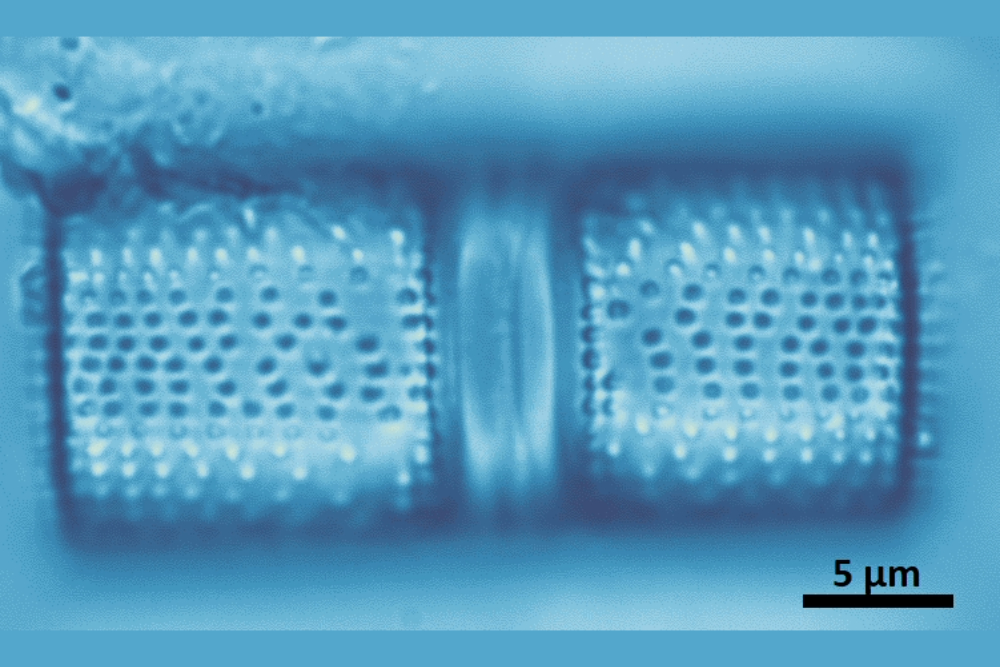Groundbreaking RESEARCH
New research sets off alarm bells
September 20, 2023
Share
![[Image of Great Slave Lake taken by Copernicus Sentinel-2A satellite in June 2020 showing coring locations, remnants of ice cover, and suspended sediment discharged into the West Basin from the Slave River. Credit: European Union, Copernicus Sentinel-2A imagery]](/gazette/sites/gazettewww/files/assets/stories/2020/GSL%20image%20Copernicus_1000x667.png)
A team of researchers from Queen’s University and Environment and Climate Change Canada have shown that accelerated 21st-century warming has triggered a striking shift in algal composition in Great Slave Lake, North America’s deepest lake, and one of the world’s iconic "northern Great Lakes."
The research team used information preserved in dated lake sediment cores as an archive of past ecosystems changes. They showed that a rapid restructuring of algal communities has occurred, clearly linked to declining lake ice cover and other climate-related changes, which were unparalleled over at least the last 200 years.
Arctic temperatures have risen by as much as four times the global average over recent decades, with a notable acceleration since the beginning of the 2000s.
![[Using an ice auger to drill a hole through the ice on Great Slave Lake, March 2014. The red tent is set up to provide shelter and to heat water for thawing equipment. Credit: Marlene Evans, Environment and Climate Change Canada (ECCC)]](/gazette/sites/gazettewww/files/assets/stories/2020/715_1000x667.jpeg)
[Credit: Marlene Evans, Environment and Climate Change Canada (ECCC)]
These changes at the base of the food chain have unknown ramifications for fisheries and aquatic ecosystem functioning and hence their impacts on First Nations, Métis, and other northern communities. Great Slave Lake also supports the largest commercial, recreational, and Indigenous freshwater fishery in the Northwest Territories, with approximately 60 per cent of the territory’s population living near the shorelines of the lake. Without government action directly working to protect aquatic environments and ecosystems, climate change will continue to impact the way of life for those who rely on the northern Great Lakes.
"Such a pronounced change at the base of the food chain is a clear indication that this 'northern Great Lake' is entering a new ecological regime," explains Kathleen Rühland, lead author and a senior research scientist at Queen’s Paleoecological Environmental Assessment and Research Lab (PEARL). "These microscopic algae are fundamental to lake ecosystem functioning and these big shifts are a sure sign that the entire lake is changing and changing fast."
There is very limited data on northern lakes, and much of what is currently known about Great Slave Lake can be attributed to detailed studies by the late D.S. Rawson (University of Saskatchewan) and his colleagues during the 1940s and 1950s. These and other historical lake surveys allowed the researchers to ground-truth (information that is known to be real or true, provided by direct observation and measurement) their paleolimnological (lake sediment) findings.

[Credit: K. Rühland, Queen's University]
The biggest takeaway of the current study is how rapidly changes have occurred in the biological communities of this lake, crossing important ecological thresholds.
"Our previous work has shown that recent warming has resulted in shorter ice cover periods and other predictable changes in many small and medium-sized lakes throughout the Arctic, with important ecological repercussions," says co-author John Smol (Biology), co-director of PEARL. "In contrast, very large, deep and (until recently) extensively ice-covered northern lakes such as Great Slave Lake have been partly sheltered from climate warming but are now entering a new ecological state."
The research was published in Proceedings of the Royal Society B.



